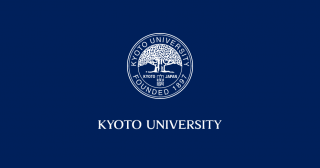On 16 July, Shota Hagio, a third-year student at the Graduate School of Human and Environmental Studies, received the Emerging Scientist Award from the International Society of Biomechanics (ISB) at the Society's 25th Congress. The biennial award recognizes up-and-coming early-career researchers in the fields of motor control and electromyography. Mr Hagio is the first Japanese national to win this accolade.
At the Congress, held in Glasgow, Scotland, UK, Mr Hagio delivered a lecture on his award-winning research (Hagio & Kouzaki, Journal of Neurophysiology 2014, Hagio et al., Frontiers in Human Neuroscience 2014, and Hagio & Kouzaki, Experimental Brain Research 2015) under the title, "Muscle synergies as a strategy for coordinating a redundant motor system". His talk focused on muscle synergies. There has been a long-held assumption that these synergies are used by the central nervous system to control redundant movements but the existence of which in the neural circuit has been controversial. He outlined the work entailed in quantifying them and verifying their functional significance by means of physiological experiments and mathematical analysis.

Mr Hagio delivering his lecture at ISB's 25th Congress





